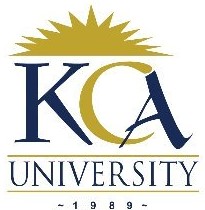
UNIVERSITY EXAMINATIONS: 2017/2018
EXAMINATION FOR THE DEGREE OF BACHELOR OF SCIENCE IN
INFORMATION TECHNOLOGY
BIT2109 BAC2104 PROFESSIONAL ISSUES in IT
BUSS 207: BUSINESS ETHICS IN IT
BCT 3104: COMPUTER LAW AND ETHICS
FULL TIME/PART TIME/DISTANCE LEARNING
DATE: APRIL, 2018 TIME: 2 HOURS
INSTRUCTIONS: Answer Question One & ANY OTHER TWO questions.
QUESTION ONE (Compulsory)
a) When working with IT systems it is important that an organisation’s management has both
legal and ethical policies in place. Explain BOTH the terms ‘Legal’ and ‘Ethical’.
(6Marks)
b) What action would you take if you suspected that software being developed by your
company might be harmful because it had not been rigorously tested for reasons of
minimising cost? (4 Marks)
c) Briefly discuss whether technology determines society or if society determines technology
(4 Marks)
d) Describe the essential elements relating to conduct that identify a professional activity
(4 Marks).
e) Using relevant examples describe two ethical theories (2 Marks)
f) How can information and information systems be used to gain power and, thereby create
additional ethical issues? (6Marks)
g) Intellectual property refers to creations of the mind: inventions, literary and artistic works,
and symbols, names, images, and designs used in commerce. Identify the key forms of
intellectual property (4 Marks)
QUESTION TWO
a) We are entering a generation marked by globalization and ubiquitous computing. The second
generation of computer ethics, therefore, must be an era of ‘global information ethics’. The stakes
are much higher, and consequently considerations and applications of Information Ethics must be
broader, more profound and above all effective in helping to realize a democratic and empowering
technology rather than an enslaving or debilitating one.’ Discuss with reference to e global impact
of computing (10 Marks)
b) Should the Kenyan government place any restrictions on Internet information available to its
citizens especially in the advent of the use of social media to spread hate speech?
(10 Marks)
QUESTION THREE
a) Differences between countries may hinder attempts to regulate global computing activities.
Explain using the headings below, with an example in EACH case, how a computer based activity
that might be routinely accepted in one country might be unknown or unacceptable in another
country
(i) Legal differences between countries (3 Marks)
(ii) Differences in technical capabilities between countries (3 Marks)
(iii) Differences in cultural or social norms between countries (3 Marks)
b) Do you think that it is ethically defensible for ISPs and government agencies to keep records of
all Internet activities undertaken by individuals? Give reasons for your answer. (5 Marks)
c) Discuss how Personality Traits and Attitudes, Moral Development, and the
Situation affect Ethical Behavior at the work place (6 Marks)
QUESTION FOUR
a) Discuss why internet addiction has become a major concern to psychologists (5 Marks)
b) As an IT professional working within the industry you will be expected to follow a code of
ethical conduct through your working life. Each individual needs to have their own code which
should cover conduct: Socially, Legally and Professionally For any TWO of these categories
give an example of an IT moral or ethical dilemma and an appropriate response to it.
(5 Marks)
c) Recently in the US and Europe, technologies for human enhancement have attracted public and
scientific debate. While enhancement of human abilities has always been a goal for technology
development, new technologies now directly intervene in human sensory and cognitive
apparatus. Scientific input from neuroscience, nanotechnology (e.g. the development of
devices and materials) as well computer science are fuelling the development of these
emerging technologies. A major application of these technologies is neural implants and other
brain-machine interface devices. Some of them are dedicated to medical purposes, e.g., to
reconstruct visual and auditory sensory abilities (retina and cochlea implants). Other implants
have direct consequences for language production and self control (deep brain stimulation for
patients suffering from Parkinson’s disease). Enhancement technologies can also be noninvasive like pharmaceuticals aiming at improving cognitive abilities but also regulating
emotions. In some countries, the use of these substances has already produced concern about
societal consequences. Part of this debate is also the increasing potential of neuroscience in
analysing brain activity patterns by which thoughts and brain states can be identified. In the
future, this can, for example, enhance possibilities to detect liars. These research results have
triggered debate about the increasing control potential of these technologies, but also about the
nature of the intervention in the “human condition” that is supposed to be altered.
Based on the case study above answer the following questions
i) Discuss the main arguments and legitimisation efforts of for or against human
enhancement (5 Marks)
ii) Discuss the societal consequences of use of enhancement technologies
(5 Marks)
QUESTION FIVE
a) Discuss the statement “computer and information technology creates new possibilities for
human behaviour” (8 Marks)
b) In your view is software piracy a morality issues or legal issue. Justify your answer
(6 Marks)
c) The IT industry is increasingly aware of its own environmental impact. Describe at least
three environmental problems to which the industry contributes and how, as an IT
professional, you can help to solve this problem. (6 Marks)
